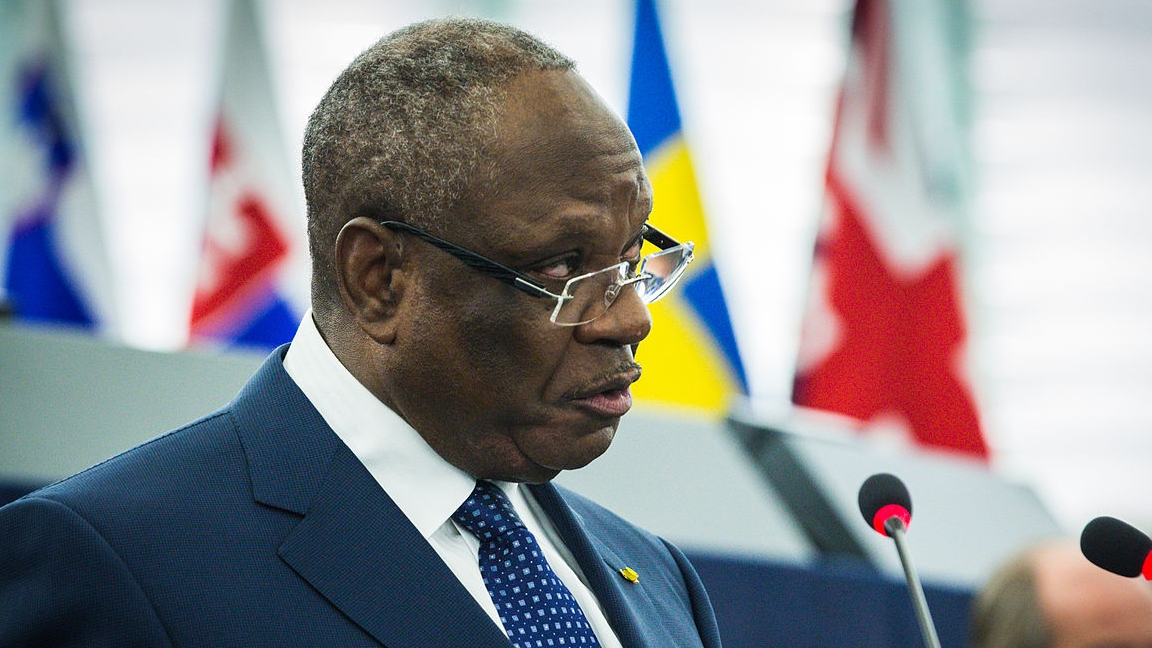The president of Mali, Ibrahim Boubacar Keita, announced his resignation and the dissolution of the parliament late on Tuesday, August 18, after the military arrested him and prime minister Boubou Cisse. The country has been witnessing protests for the last two months against alleged corruption, presence of foreign troops and rising religious extremism.
Keita was elected president for the second consecutive term in 2018. Addressing the nation on national television, Keita said that certain elements in the military do not want him to continue as the president and he wishes no blood to be shed to keep him in power.
The revolting officers and soldiers led by Col Malik Diaw took control over the country’s largest military camp in Kati and marched to the capital city Bamako and arrested the president and the prime minister. A large crowd welcomed the soldiers in the city. Coup leaders led by colonel major Ismail Wage later announced on the national TV that they want to put a “civil political transition” administration in the country which will conduct fresh general elections.
🔴🇲🇱[THREAD]Des militaires prennent le pouvoir au Mali et poussent à la démission le président Ibrahim Boubacar Keïta.
►Ils affirment vouloir mettre en place une “transition politique civile” devant conduire à des élections générales.
🔴RFI est en édition spéciale de 6h30 à 7hTU pic.twitter.com/wtXgO8nRXj— RFI Afrique (@RFIAfrique) August 19, 2020
The events were similar to the 2012 coup when Keita’s predecessor Amadou Toumani Tour was deposed by the military.
The protests in Mali by the country’s opposition began on June 5. The protesters have been demanding the president’s resignation as well as greater political reforms, transparency and an end to alleged widespread corruption in the present dispensation. The protesters, led by a joint platform called June 5 movement or M5 REP, also expressed their apprehension about the growing strength of religious militant groups in the northern and eastern parts of the country, which they allege the president has failed to tackle.
Protests are also demanding the withdrawal of the French and other foreign troops from the country. Under Operation Barkhane, around 5,000 French troops have been deployed in Mali since 2013 to fight the extremist Islamist groups such as ISIS and Al-Qaeda in the West African region. Locals have reported several human rights violations by these soldiers.
Coup in progress in Mali to bring an end to the French-backed administration of President Ibrahim Boubacar Keita.
The protesters whose movement led to the coup want the end of France’s influence in the country. pic.twitter.com/BF43NcEIUi
— Africa Facts Zone (@AfricaFactsZone) August 18, 2020
Following Tuesday’s coup, the Economic Community of West African Countries (ECOWAS) and other organizations have announced the suspension of financial flow to Mali. They have also announced the closing of their borders with the country. The African Union demanded the release of the president and other government officials in a press release.
[Read] @_AfricanUnion Commission Chairperson @AUC_MoussaFaki strongly condemns the forced detention of the President of #Mali Ibrahim Boubacar Keita, the Prime Minister and other members of the Malian Government and calls for their immediate release.
@ https://t.co/r7wRg02Ppm pic.twitter.com/3bPY6FWzAV— African Union (@_AfricanUnion) August 18, 2020
Protesters had earlier refused to agree to the concessions and reforms announced by president Keita in response to their demands. Several regional initiatives, taken up by the neighboring countries, had also failed to pacify the protestors. More than 23 people lost their lives in the state oppression during the protests.





